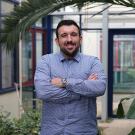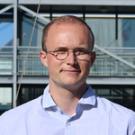
Since January 2018, human and social science research work has been undertaken on how to train engineers who can adapt to meet new societal and especially environmental challenges.
This project involves 7 PhD students and 12 lecturers. Five professional engineers in SMEs and major groups are also part of the team. They are regularly interviewed to obtain their professional points of view on these subjects.
The research has been organized into 5 major stages :
- Reflection/Theoretical analysis on the role of the engineer today and tomorrow
- Survey and analysis of expectations in terms of engineer training
- Investigation into the practices in each country
- Identification of the obstacles, driving forces and dynamics
- Collaborative construction of ways of improvement
On Monday 2 December, a round table and workshops were held during an update session at ENSTA Bretagne which enabled the participants to share their points of view on the subject and to refine the recommendations resulting from the first studies.
Company representatives came to share their points of view on the issues raised and propose subjects for further investigation:
Let the recommended solutions remain simple and pragmatic. We do not need to seek perfection but look for simple, realistic and practicable stages. However, bear in mind the major mid-term challenges to find viable long-term solutions.

Financed by the French Ministry for Foreign Affairs, The Algerian Ministry for Higher Education and Research, the Moroccan Ministry for Higher Education and Research, the Tunisian Ministry for Higher Education and Research, the RIIME Project involves ENSTA Bretagne’s partners, the Cread Algiers, the ENSEM Casablanca, the ENI Sfax and the University of Sfax.





















